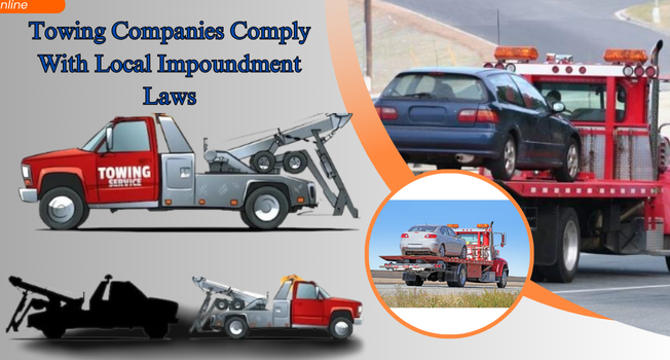Leadgrowdevelop
1M
100

Image Credit: Leadgrowdevelop
How Do Towing Companies Comply With Local Impoundment Laws?
- Towing companies adhere to strict regulations imposed by local impoundment laws to ensure fairness and transparency in towing and impounding vehicles.
- Impoundment laws dictate instances when a vehicle can be impounded, such as parking violations, abandoned vehicles, blocked access, and unpaid fines.
- To operate legally, towing companies may need licenses, certifications, and insurance policies to comply with local business regulations.
- Proper signage and notifications are essential legal obligations for towing companies before removing a vehicle, including displaying company contact information, parking restrictions, and towing costs.
- Documentation and record-keeping are crucial, requiring detailed information on the towed vehicle, reason for impoundment, location, and timestamps for legal purposes.
- Towing companies must adhere to fee regulations set by local statutes to prevent overcharging and provide written receipts to vehicle owners detailing all charges.
- In case of disputes, vehicle owners have the right to contest a tow through formal appeals or legal recourse, ensuring fairness and accountability in the towing process.
- Compliance with impoundment laws not only ensures the legitimacy of towing operations but also contributes to maintaining order on the streets and protecting the rights of vehicle owners.
Read Full Article
6 Likes
For uninterrupted reading, download the app